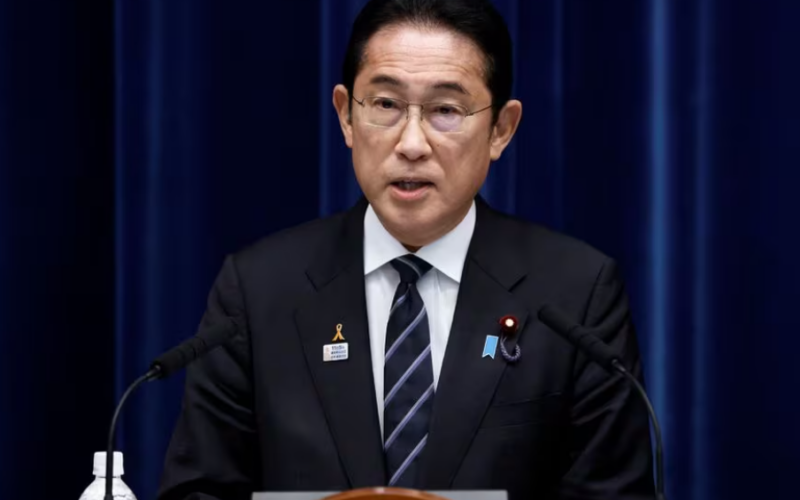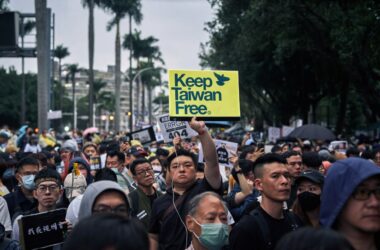Japanese Prime Minister Fumio Kishida has announced his intention to overhaul his cabinet on Thursday in response to a fundraising scandal that has significantly eroded public support for his administration. The embattled premier expressed a “strong sense of crisis” regarding political funding issues during a press conference, emphasizing the need for swift action to address the unfolding challenges.
Kishida’s proposed cabinet reshuffle is set to include the removal of Chief Cabinet Secretary Hirokazu Matsuno, a key figure in the government, according to statements from the head of his ruling coalition partner, Natsuo Yamaguchi. While as of Tuesday, Kishida had expressed his desire for Matsuno to continue in his role, reports suggest that ex-foreign minister Yoshimasa Hayashi is being considered as his replacement.
Media outlets indicate that four cabinet ministers and several deputy ministers are expected to step down as prosecutors investigate allegations of lawmakers receiving thousands of dollars in fundraising proceeds that were not properly accounted for in official party records. The scandal has sparked serious questions about Kishida’s leadership and created internal disarray within his government.
The prosecutors’ probe is primarily focused on lawmakers associated with the ruling party’s influential “Abe faction.” However, there are also reports suggesting an investigation into Kishida’s faction, which he led until last week. Allegations suggest that the factions concealed significant amounts of political funds over several years, involving a scheme where proceeds from ticket sales to party events were kept off the books.
The scandal has led to a record low in public support for Kishida’s administration, hovering around 23% in recent polls. Analysts believe that any direct allegations implicating Kishida could further erode support. The Liberal Democratic Party’s (LDP) popularity has also dipped below 30%, marking the first time since 2012.
Despite the decline in support, Kishida is not obligated to call for elections until October 2025. The weakened opposition faces historical challenges in making sustained inroads against the LDP’s dominance. The LDP is slated to conduct leadership elections in September, raising questions about the longevity of Kishida’s tenure as prime minister.
In response to the unfolding scandal, the main opposition party submitted a motion of no-confidence in Kishida’s administration. However, the motion was comfortably voted down in parliament, where the LDP and coalition partner Komeito hold a clear majority. Opposition leader Kenta Izumi criticized the prime minister’s crisis management capabilities, emphasizing the gravity of the alleged unparalleled scandal caused by the LDP and its factions.
As Japanese Prime Minister Fumio Kishida prepares for a cabinet reshuffle amid a fundraising scandal, the political landscape is fraught with uncertainty. The ongoing investigations and the erosion of public support pose significant challenges to Kishida’s leadership, with the potential for further repercussions in the months ahead. The evolving dynamics within the ruling party and parliamentary responses will play a crucial role in determining the longevity of Kishida’s tenure as the head of the Japanese government.








